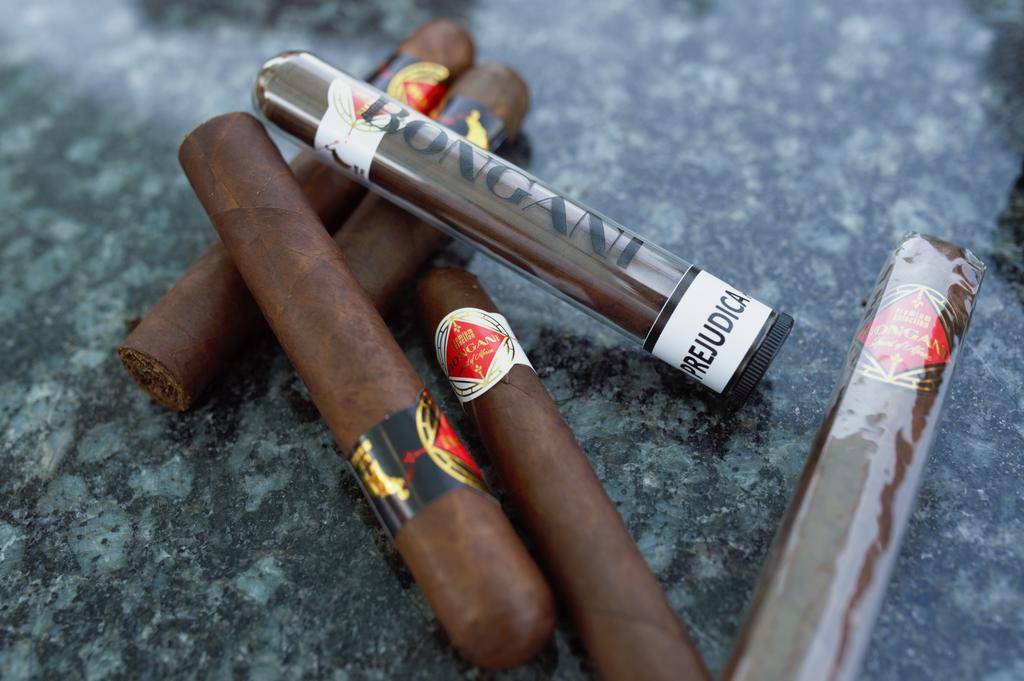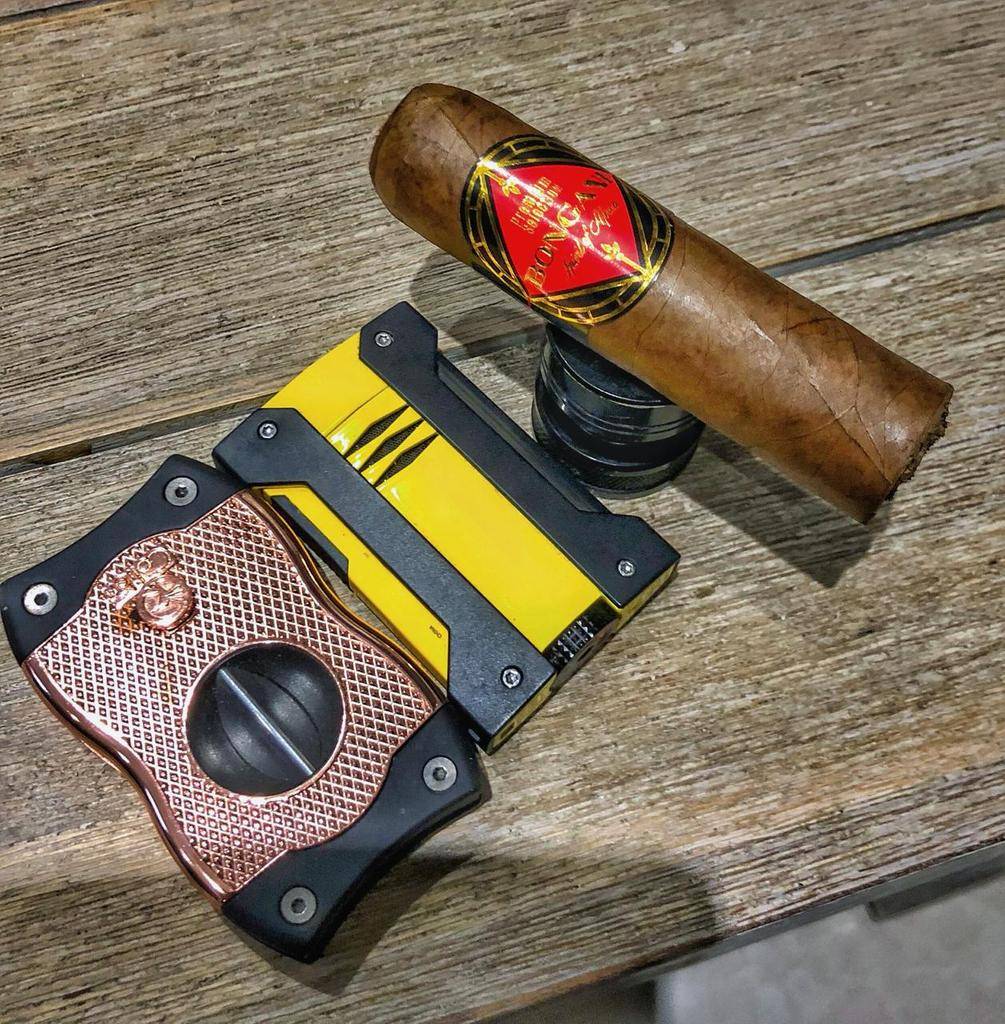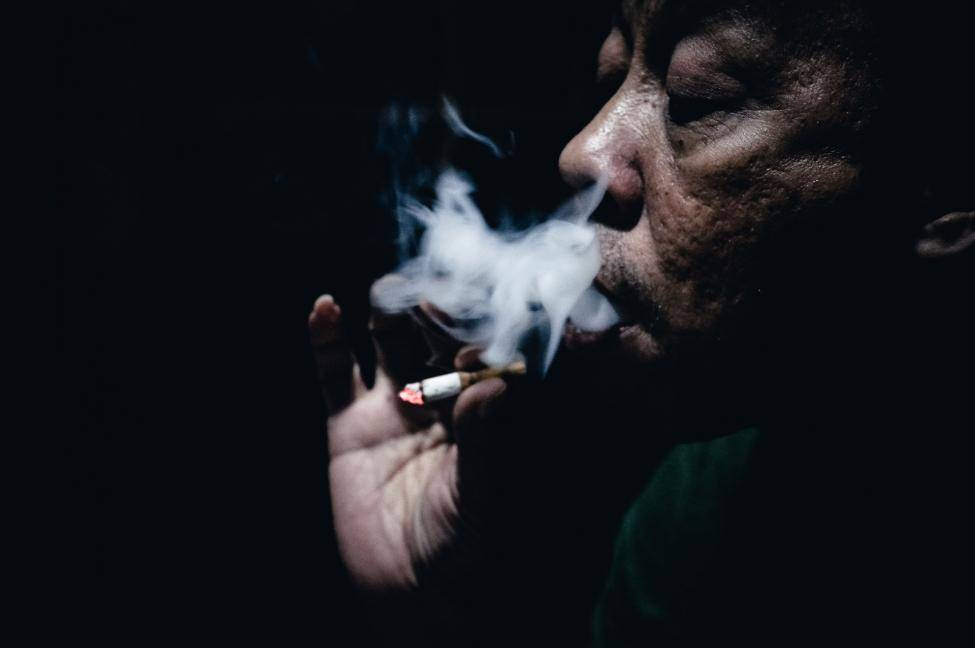How Bongani Is Running Africa’s First Cigar Brand—But Doing It Cuban Style

Benjamin walks into the chill, yet buzz of a new mall in a hippy town. Praised as one of the ambitious evidences of China’s infiltration into Nigeria’s commercial capital, the establishment plays host to a variety of retailers.
But Benjamin (who is just as fictitious as this anecdote) is looking to some packets of cigar, an intention which made him realize all brands are imported from outside Africa.
This reality—which is true no matter how vague the spiel may seem—makes Benjamin go online immediately to find out if his thoughts are true.
Before now, Benji’s quick Google search would come up short, confirming his givings. But that depends on when that internet search was made: 4 years ago or sometime after? Bottom line is, the lack and the timeframe are two very important offcuts in the whole narrative that started the first cigar brand in Africa.
Filling A Void?
Bongani Cigars was founded in 2016 by Kamal Moukheiber. Though he’s of Lebanese origin and has lived in the U.K for 17 years, the entrepreneur’s repeated visits to family in Maputo latched him onto a discovery that is bringing the Dominican Republic to Africa in terms of the belvedere.
African smokers and cigar retailers mostly favor brands such as Oris, B&H, St. Moritz, Dunhill, Rothmans and Marlboro among others. This is the reason our thought-provoked character, Benjamin, finds only these likes in the biggest supermarkets across Africa’s largest megacity. Only e-commerce platforms like Jumia offer a range of uncommon products like Hornet.

The little beginning of Bongani bears semblance to a storied American dream which took the global wine industry by storm. Roberto Mondavi is said to be the pioneer of wine in the United States. Before Mondavi, top quality wines were a prerogative of France and Italy, but the entrepreneur looked to replicate premiumness in his country.
Not only did Mondavi promote labeling wines varietally rather than generically, he changed the world one taste bud at a time. Kamal is, this time, chasing the African version of such a dream going after the Cuban and Dominican cigars—two of the world’s top smoke producers.
With “premium” still very much in mind, Bongani (which is Zulu for ‘be grateful’) is sitting already sitting atop a million-dollar fortune.
The Figures
Bongani produces 10,100 units every month, each of which retails between USD 12 to USD 15. However, our Robusto size—which measures 14½ inches—costs between USD 20 to USD 25. The brand prices its cigars around 10 percent less the price the equivalent in Cuba is sold for. In night clubs, though, the robusto can go for USD 40.
Africa has been producing tobacco for more than 100 years. With water, land and skillset aplenty in the continent, the company is plugging gaps to create an African identity around cigars. The 50-year-old former banker is confident that there’s huge potential for cigar production in the continent.
“Mozambique is a small market but it makes sense to produce there as labour costs are low. A cigar roller costs about 50 percent of what they would cost in the Dominican Republic. Africa is a large and growing market that is mainly neglected by the big cigar producers.
It is also a fragmented market. Being based in Africa—close to our clients—gives us a strong competitive advantage. On average, from a seed in the ground to cigar on the shelf in Johannesburg, it takes about 8 intermediaries. We cut that to 2 or 3 and, one day, 1,” Kamal told WeeTracker.
Going Against Cuba The Cuban Style
Upon entry into the market, Bongani Cigars was concerned whether going after the Cuban competition would go up in embers.
“How would people react to a non Cuban, African cigar? The answer is, very well! People love the idea of an African cigar and we have strong demand all over the continent. Of course, quality is paramount and our cigars can match any top tier Cuban or Dominican cigar,” Kamal said,
Bongani Cigars operates in South Africa, Kenya and the Mozambican capital, Maputo. The firm revealed that it has plans to expand to Nigeria, where an average of 20 billion cigarettes are consumed by 4.5 million people on a yearly basis. It also plans to launch in Botswana, North America.
However, the Nigerian market is dominated by British American Tobacco (BATN) which controls over 78 percent of the market share and closer to 82 percent of the West African market.
The firm’s head of production, Anthony Perez, is from the Dominican Republic. The workforce in Maputo are rolling cigars by hand, a precise art that defines some of the best cigars—including the Cuban version. Being that Mozambique speaks Portuguese, it’s easy for Anthony to connect with and train the staff.
In most markets, the brand has its own distribution team. In other markets, Bongani Cigars works with a local distributor. Nevertheless, logistics is a big issue alongside moving products and local government bureaucracy. Cracking the luxury market is also a tough one, but the firm can boast of tobacco aging 30 years.
Driving Market

Between 1990 and 2012, the overall demand for cigarettes in 22 African countries increased by 44 percent—from 165.6 billion to 238.5 billion sticks. This demand was followed by a 106 percent increase in smoke production during the same period. Tobacco firms are thriving due to the lack of strong anti-tobacco and tax laws.
The firm, which says it is now the number cigar producer in Kenya, gets its wrappers from Cameron and cedar from Ghana. All other ingredients used in production are sourced from a variety of places, even outside the continent. To make it in a market already dominated by bigwigs, Bongani is leveraging on “identity” among a range of other tactics.
A series of unconfirmed information says that Bongani Cigars is in talks with popular Kenyan rapper Kaligraph Jones to become its brand ambassador. Kamal does not confirm this news, but told WeeTracker that everything about negotiations with Papa Jones is not unfounded.
Should this come up done, promotion and reach could spur a significant wave of attention toward ‘made in Africa cigars’ since Kaligraph is a well-known African superstar. The brand has had many enquiries from America and resonates a lot with the African American community there.
“There was no single turning point, but just a series of successes and setbacks. Getting our first re-order was one of those key moments. It is okay to sell an initial stock to a client—people are curious about an African cigar. It is when they come back for more that you know you might be doing something right”.
The title of this article’s title has been updated to show accuracy.